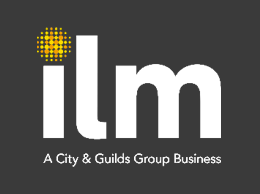At the core of every successful business is a unified team. Whether they work toward furthering a cause or generating revenue, effective team members come together in order to reach a common goal. Bringing a team together is a leader’s key responsibility. Strong leadership can have a positive impact across a wide spectrum of industries.
In order to inspire employees to accomplish business goals and achieve growth, many argue that keeping it simple is the best way forward. Leaders wouldn’t go far wrong by exhibiting five fundamental qualities: effective communication, passion, decisiveness, treating people as individuals, and a commitment to team development.
Effective Communication
Managers and leaders communicate in a variety of ways with their employees but being clear, concise and professional is the key. It’s important to remember that nonverbal communication can be just as impactful as verbal and written communication when leaders convey their thoughts, ideas and directions. Good leaders also understand that communication flows both ways – listening to your teams is essential!
Passion
Showing you care in a project or goal is another key leadership quality. If leaders model passion for their work, their teams likely to follow suit. Teams who believe in what they do tend to be happier and work better than those who don’t.
Decisiveness
Successful leadership relies on decisiveness and strong problem-solving and decision-making skills. When leaders act decisively and support their decision-making with facts and logic, they demonstrate credibility. Teams respect leaders who are able to resolve situations quickly and effectively.
Treating people as individuals
A commitment to connecting with team members individually can determine whether leaders are effective at their jobs. Most people don’t want to feel like faceless cogs in their companies, and they perform better when they have a personal connection with their colleagues and managers. Relationship and trust building can inspire and motivate employees to work toward, and ultimately achieve, specific goals.
Team Development
Strong leaders invest in the development of their teams by embracing training initiatives such as; classroom based workshops, coaching, team building, self-learning opportunities and upskilling opportunities. While working toward further enhancing team members’ work ethics, skill sets, and knowledge, leaders can cultivate an environment for personal growth and increase commitment to achieve key business goals.
Here at Futureproof, we know what it takes to lead a team effectively, come and talk to us about how we can help lead your teams – People Management & Leadership.






